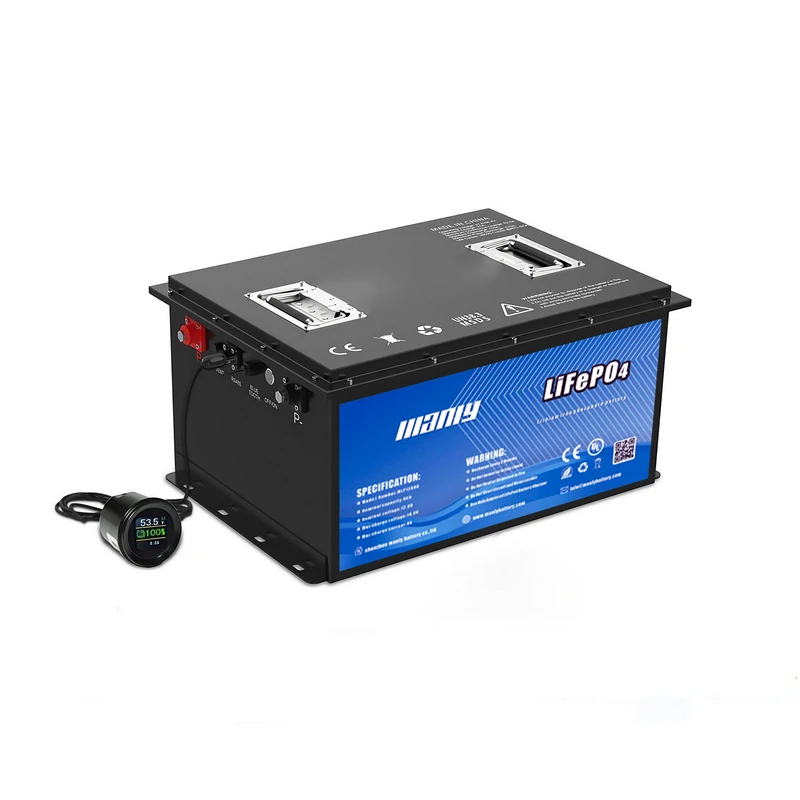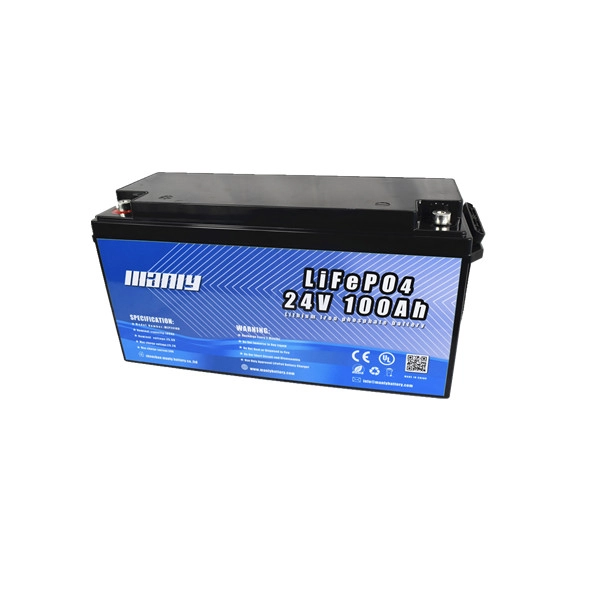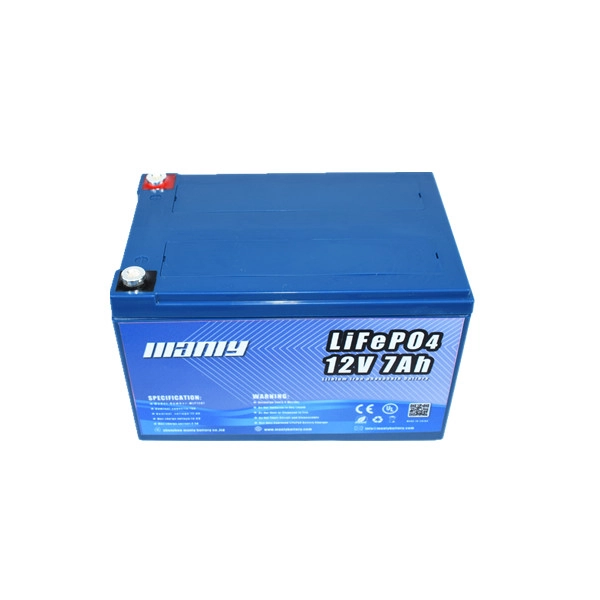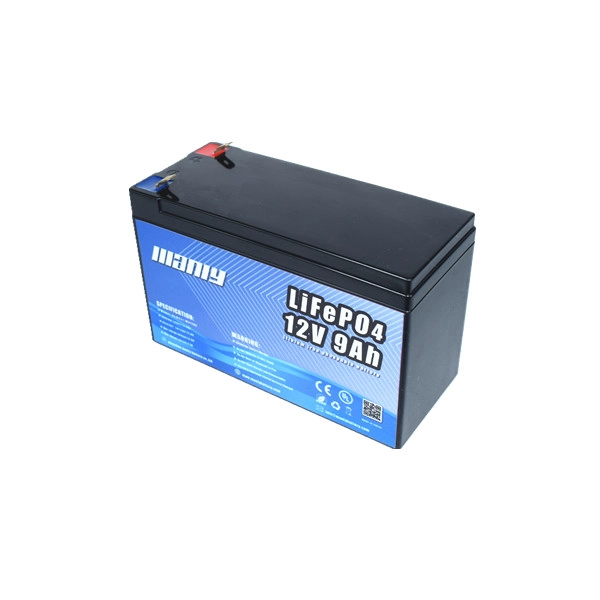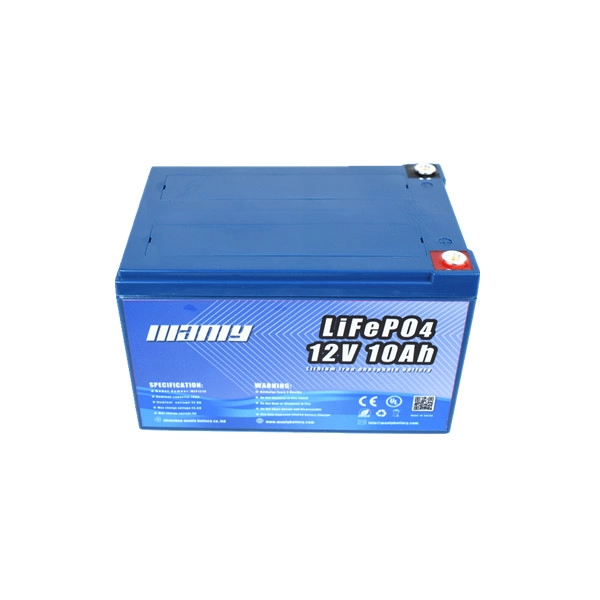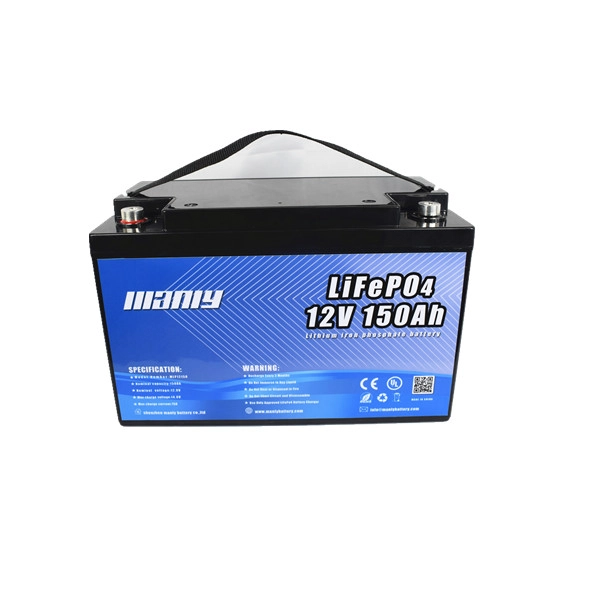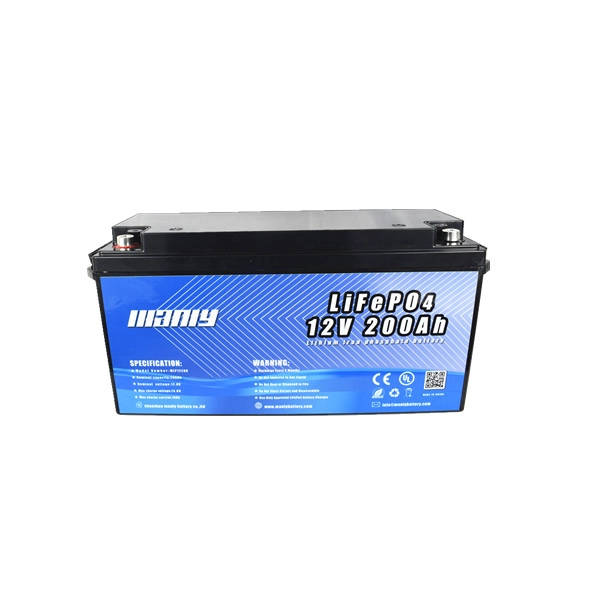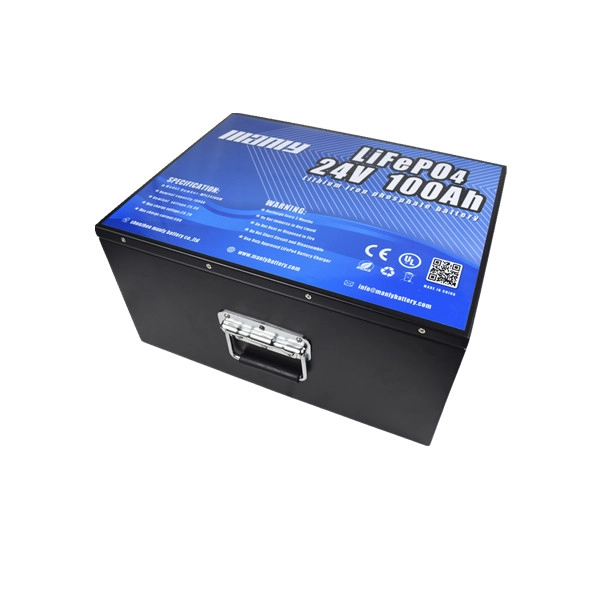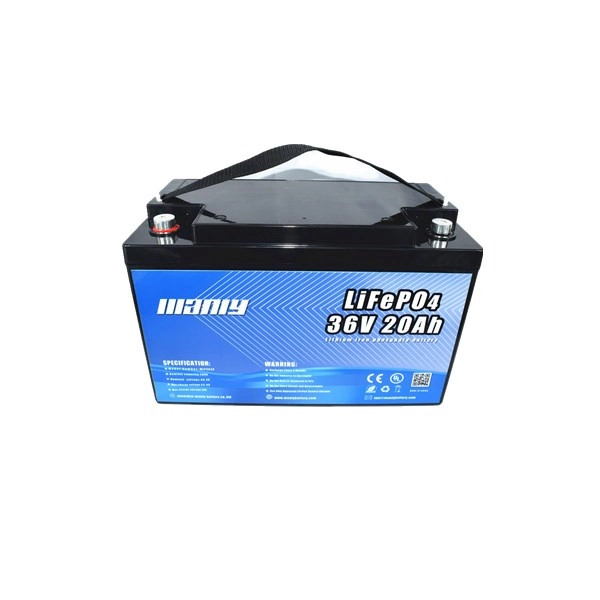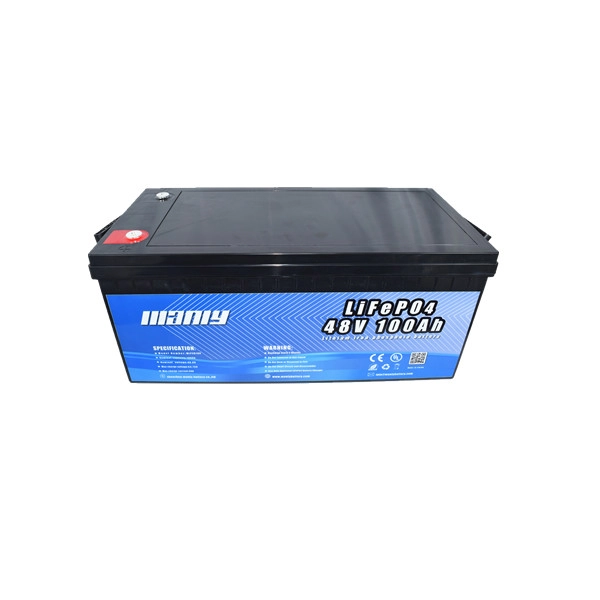6V vs 12V Battery: The Ultimate Comparison
Table of Contents
- 6V vs 12V Battery: The Ultimate Comparison
- Understanding the 6V Battery: Pros and Cons
- Unpacking the 12V Battery: Benefits and Limitations
- What are 12v and 6v Lithium Batteries Made of?
- What’s the Physical Difference between 6v and 12v Batteries?
- Amp-Hour Capacity for 6v and 12v Batteries
- How 6v and 12v Batteries Compare in Practical Usage
- Non-Use-Based Traits to Consider
- Source Your 6v and 12v Lithium Batteries from MANLY Battery
- Learn More About Battery
Understanding the 6V Battery: Pros and Cons
Diving into the world of batteries, one might come across various types, each with its unique features and capabilities. One such type is the 6V battery, which, as the name suggests, has a voltage output of 6V. But what exactly does this mean, and why should one consider it? Let's break it down.What is a 6V Battery?
Simply put, a 6V battery is a storage cell designed to release stored electricity consistently at 6 volts. This means that during its operation, the voltage output remains stable, ensuring a steady power source.Benefits of 6V Batteries:
- Larger Discharge Capacity: One of the standout features of the 6V battery is its impressive discharge ability. This ensures that your devices get the power they need for an extended period.
- Enhanced Recharge Capability: These batteries not only discharge efficiently but also recharge better, ensuring longevity.
- Smaller Amp Output: Despite its impressive voltage, the 6V battery boasts a smaller amp output, which can be a pro depending on the application.
- Higher Ah Capacity than 12V: When compared to the standard 12V batteries, 6V batteries have a larger ampere-hour (Ah) capacity. This translates to longer periods between charges.
- Increased Durability: With proper maintenance, a 6V battery can outlast many of its counterparts, giving you more value for your investment.
Drawbacks of 6V Batteries:
- Cost Considerations: A notable downside is the higher price tag associated with 6V batteries.
- Size and Housing Issues: Being larger and taller, these batteries often need special battery boxes to accommodate their size.
- Availability Concerns: 6V batteries are not as common as other types. This means that when it's time for a replacement, you might face challenges finding the perfect match.
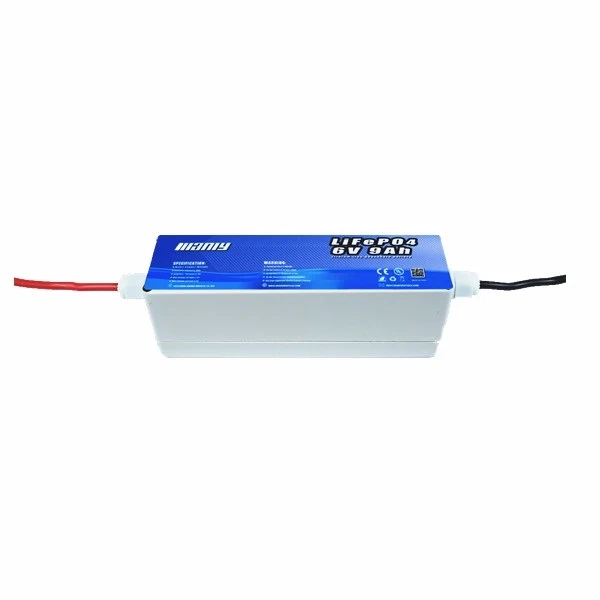
Unpacking the 12V Battery: Benefits and Limitations
In the vast realm of batteries, understanding the specifics of each type can be a game-changer. Among the commonly utilized variants is the 12V battery. Let's delve deeper into what it offers and its potential challenges.Defining the 12V Battery:
At its core, a 12V battery serves as an electrical storage unit. Its primary function is to store electricity and consistently release it at a 12-volt rate until it's fully discharged.Advantages of the 12V Battery:
- Steady Voltage Output: One of the key features is its consistent voltage delivery. Throughout its lifecycle, it maintains a stable 12V output.
- Enhanced Amp Hours: In the battery world, amp hours matter. With 12V batteries, you can expect double the amp hours, ensuring longer operation.
- Versatile Applications: These batteries find their place in various settings, including electric vehicles and garages, attesting to their adaptability.
- Cost-Efficient Choice: When cost comes into play, 12V batteries, particularly the deep-cycle lithium variants, typically come out cheaper than their 6V counterparts.
- Widespread Availability: One less thing to worry about! Whether you're in a big city or a smaller town, finding a 12V battery is generally hassle-free.
- Optimized Amp-Hour in Series: When linked in a series formation, these batteries offer an even higher amp-hour, amplifying their utility.
Drawbacks of the 12V Battery:
- Shorter Lifespan: Compared to 6V batteries, the 12V options tend to have a shorter overall life.
- Reduced Amp Hour Rating: While they offer double amp hours in general, their rating is still less than what you'd get from a 6V battery.
- Size and Weight Concerns: The bigger and heavier build of the 12V battery can pose installation challenges, especially in tight spaces.
Wrapping Up:
The 12V battery brings a mix of advantages to the table, making it a favored choice for many. However, like all things, it's not without its limitations. When choosing a battery, it's essential to consider your specific needs, space constraints, and budget. With the right knowledge, you're better equipped to make an informed decision.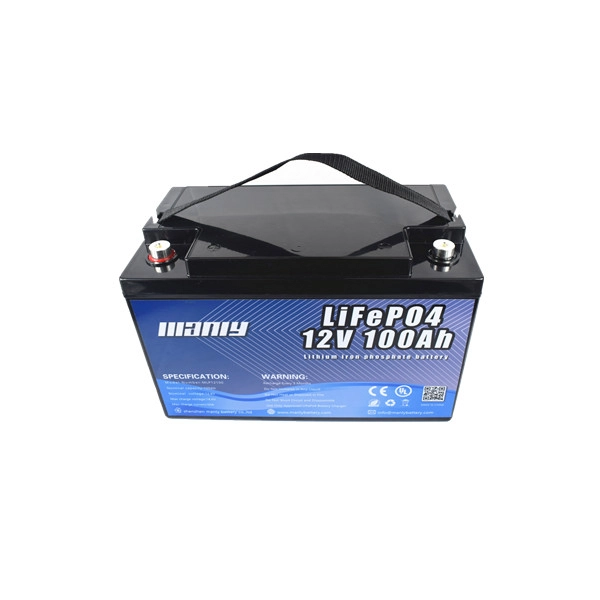
What are 12v and 6v Lithium Batteries Made of?
6v and 12v batteries are pretty much identical in terms of their chemical makeup and structure. For a LiFePO4 lithium battery of any size, the chemical composition is simply lithium iron phosphate, a carbon anode, and a lithium salt electrolyte. Other types of lithium batteries will use the same chemicals, but they’ll also use lithium manganese oxide or cobalt in various amounts.Those chemicals are used to make cells that range from 3.2v to 3.7v depending on the type of lithium battery, and those cells are connected in a series to reach the amount of voltage required for the battery being made. Those cells are then protected in a hardened housing to resist impact, electrical discharge, and other things that cause failures.It’s important to note that the voltage rating is the voltage the battery can discharge continuously until it is depleted without fluctuation.What’s the Physical Difference between 6v and 12v Batteries?
There isn’t really a chemical difference between the two, and the housings are largely the same designs depending on what each battery is made for. So, how does each battery physically differ, and how does that affect usage?Well, it all comes down to the number of cells each battery has.As we mentioned earlier, the higher the voltage you want, the more cells you need. Even the highest voltage cells only reach 3.7 volts in these batteries. So, making a battery that can discharge 6v of electricity continuously obviously requires half the number of cells as a battery that can discharge 12v.This doesn’t mean that 12v is automatically the more powerful and superior option, though.The way voltage works means that sometimes 6v is better than 12v due to how the battery operates with the ampere that a particular battery operates with.Amp-Hour Capacity for 6v and 12v Batteries
The voltage is what you’ll usually see when buying a battery because it needs to remain consistent. However, amps and amp hours are just as important.Amps refer to how much energy is flowing, and amp hours are how many amps can continuously stream in 1-hour until the battery depletes.12v batteries are typically very flexible with their amp hours; with some models reaching 100ah or more. However, 6v batteries come in 5, 6.8, 10, and 12ah varieties. So, a 12-ah battery can discharge 12 amps of current at 6v for one hour before its cells deplete and need to be recharged.Due to the primary uses for 6v batteries, that’s actually quite a bit of storage, and the max ampere isn’t often used. For example, if you’re using a flashlight with 5ah, it’s not going to discharge within just an hour. It’ll likely only use a couple of amps and last for hours on end. Keep this tidbit in mind throughout the following section.How 6v and 12v Batteries Compare in Practical Usage
Despite being very similar, 6v and 12v batteries are typically used in very different applications.In this section, we’re going to talk about the various areas each battery works best and why.1: Diving Deep into 6V Lithium Batteries: Composition and Versatile Applications
In the universe of batteries, understanding the nitty-gritty of each type can make all the difference. The 6V lithium battery stands out in its unique composition and extensive applications. Here's an in-depth look:Composition of 6V Lithium Batteries:The foundation of a 6V battery lies in two Lithium-ion 32700 cells, intricately connected in a 2s1p series. Predominantly, these batteries are crafted from the reliable LiFePO4 variant.Why 6V Batteries Are a Go-to Choice:The versatility of the 6V battery sets it apart, finding its footing in diverse sectors. Let's unravel its primary uses:- Revving Up Campers and RVs: The standout power delivery of 6V batteries earmarks them as favorites for recreational vehicles - be it campers, trailers, or cargo vans. Typically, a duo of 6V batteries comes into play, offering enhanced capacity and prolonged amp output. This means longer power sustenance for your RV or trailer compared to a 12V battery. Their compact and lightweight nature fits snugly, even in confined spaces like a camper.
- Illuminating Industrial and Construction Zones: A significant domain where 6V batteries shine is in lighting up construction and industrial sites. Often tethered to flashlights, their strength lies in a stretched lifecycle and unwavering illumination consistency.
- Driving Small EVs and Golf Carts Forward: The enduring energy cycle of 6V batteries pushes them to the forefront for small electric vehicles and golf carts. In lieu of a couple of 12V batteries, a sequence of 6V ones takes the lead. Attributes like a gentler discharge pace and swifter heat dispersion let the vehicle journey longer distances. Plus, bank on these batteries for a dip in maintenance expenses.
- Backup Powerhouse for Household Gadgets: In those unexpected power outage moments, 6V batteries emerge as saviors, backing up devices like computers and TVs.
- Adventurer's Trusty Aid in Camping and Hiking: Those bitten by the adventure bug find a reliable ally in 6V batteries. Portable 6V lithium units effortlessly light up torches, headlights, or even run mini electronic tools during adventurous escapades.
2: What is a 12v Battery Used for?
12v batteries are more commonly used for electronic systems that need to maintain a consistent ampere and 12v voltage for long hours of constant use before resting to charge.Most commonly, you’ll find them in recreational vehicles. The batteries that power golf carts, motocross bikes, and similar vehicles are typically 12v, and they’re hooked directly into the system just like a car battery. 12v batteries are also common in power tools that require high torque and higher ampere to generate that torque. So, items like power drills, impact wrenches, and similar electronic tools often have 12v batteries. Let's explore the many avenues where these batteries reign supreme.- Energizing Electronic Vehicles: Primarily, 12V batteries find their stronghold in driving electronic vehicles, which includes an array that spans RVs, campers, wheelchairs, scooters, and even golf carts. Given the heightened energy demands of these vehicles, the 12V battery fits the bill perfectly. Boasting consistent power delivery, these batteries are adept at jumpstarting these vehicles with efficiency and speed.
- The Backbone of Home Inverter Systems: For those seeking uninterrupted power at home, especially during unexpected outages, 12V batteries shine as the go-to option for inverter systems. Their charm lies in their higher storage prowess coupled with deep-cycle technology. This ensures they discharge at a gradual pace, while their recharge game is impressively swift, ensuring homes remain illuminated for extended hours.
- Ensuring Unfaltering Power to Home Gadgets: When it comes to ensuring our tech gadgets remain operational without hiccups, the 12V lithium battery stands tall. Be it workhorse devices like computers and laptops or entertainment hubs like smart TVs, this battery ensures they hum along smoothly. With its expansive storage capacity, you can confidently work, play, or stream all day without the constant need to recharge.







